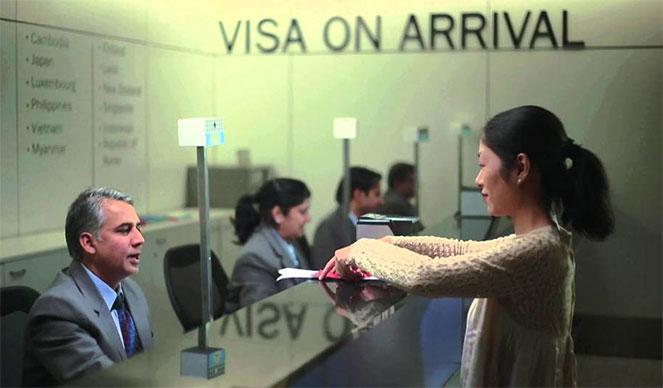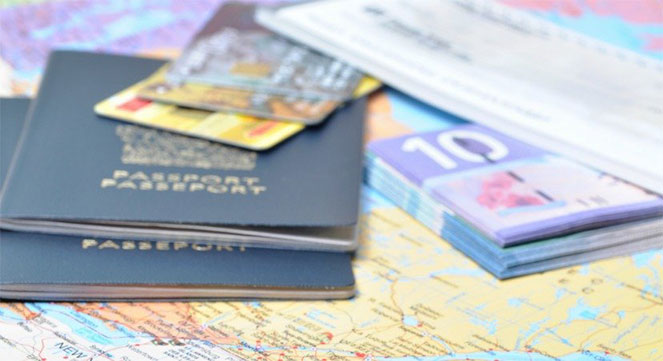In which countries you can get a visa after arrival
From the point of view of a tourist, all countries can be divided into visa and visa-free, because often one of the criteria for choosing a direction for travel is ease of paperwork. Visa-free countries in this regard are much more attractive - just buy tickets and you can get ready to go. But do not forget about such states where you need a visa on arrival.
What is visa on arrival
A visa is an entry permit issued by an authorized representative of a country to a foreign citizen. It is a mark in the passport, for which you usually need to make a lot of effort: collect a package of documents and take it to the consulate or embassy of the country you are interested in, having paid a visa fee in advance.
do you have a travel ban
Visas vary in terms of validity and purpose, they can be tourist, work, guest, and so on. Each country has its own classification of visas and their rules of registration.
A visa on arrival is a stamp in a passport that is not placed at the consular department, but on the territory of the country - usually at an international airport. It cannot be obtained in advance.
For the most part, countries that use this method of controlling incoming foreigners are popular tourist centers. The absence of the need to waste time on obtaining a visa at the embassy attracts guests to the country, and the fee for a mark in the passport is collected on the spot, replenishing the local treasury.
What do you need to get a visa
If you arrive at your destination lightly, with only your passport and bathing suit, there is a high probability that you will not be let through the airport and you will have to return home. A visa at the airport is issued subject to certain documents. As a rule, the border guard inspector requires the guest to:
- a passport with a certain margin of validity (from one to six months);
- two photos of a standard size (sometimes it is possible to take a photo on the spot);
- tickets from the country (home or to any third country) with a blackout date;
- travel agency voucher or hotel reservation for the entire stay;
- the amount of money sufficient for the duration of the visit;
- medical insurance;
- migration card (in countries where it is needed, the card form is given to fill out right on the plane);
- if children are traveling with you - their birth certificates;
- if the child is traveling with only one parent, documentary evidence that the other parent does not object to the trip may be required (usually this is a notarized power of attorney).
In addition, you will need to fill out an application, the form of which will be given to you on the spot. 
Since a visa on arrival in the vast majority of cases is issued for tourist purposes, the relevant documents are also needed to obtain it.
In addition, so that all efforts are not in vain, before traveling abroad, you need to find out if you have a travel ban, this will help the proven service not to fly.rf, which will provide you with information about the presence of debts on loans, fines, alimony, housing and communal services and other things, as well as assess the likelihood of a ban on departure abroad.Each country has its own rules for obtaining visas upon arrival, depending, among other things, on the nationality of the guest. So the list should be specified on the website of a particular embassy.
Sometimes it is advisable to have documentary evidence of the possibility of obtaining a visa upon arrival in a particular state, for example, a printout from the official website of the embassy. This is necessary in order to avoid misunderstandings when boarding a plane, because without a visa, uninformed airline employees may not let you through. But this is more the exception than the rule.
In some countries, a visa is issued exclusively at international airports, and if you arrive by land transport, for example, from a neighboring country, no one will let you in without a visa stamp. In other countries, on the contrary, you can get an entry permit at almost any border point.
Validity and cost
Visas on arrival are short-lived, ranging from two weeks to three months. If the purpose of the visit is not recreation, or the length of stay should be longer, you should obtain a visa in advance by contacting the embassy.
Egypt is especially popular with Russians not only because of its hot climate and affordable prices, but also because the visa is issued without any hassle, its validity period is one month, and the cost is $15, both for adults and for children.
Russians can visit Laos without visas, but then they will have to limit themselves to a two-week stay. So if your plans include a longer vacation, you can get a visa upon arrival. Document requirements are the most loyal: a passport with a six-month validity period, completed questionnaires and photographs is enough. For 30 days of stay you need to pay 30 US dollars. You can extend your stay for up to 15 nights at the Immigration Police for an additional fee. 
In some countries, such as the Maldives, it is also possible to extend your leave by contacting your local immigration office. But if a 30-day visa on arrival is free of charge, then for its extension for 60 days you will need to pay $50.
A visa to Jamaica for Russians will not be required within 30 days, and if you need to stay on the island longer, you will have to pay a $20 visa fee. Then the vacation will last up to 90 days.
List of countries
| Countries | Valid term of a visa | Cost, $ |
|---|---|---|
| Egypt | 30 | 15 |
| Zimbabwe | 30 | 30 |
| Madagascar | 90 | 60 |
| 30 | - | |
| Tanzania | 90 | 50 |
| Ethiopia | 30 | 20 |
| 90 | 30 | |
| 180 | 40 | |
| Bahrain | 14 | 25 |
| Bangladesh | 30 | 50 |
| Jordan | 30 | 60 |
| Cambodia | 30 | 20 |
| Laos | 30 | 30 |
| Lebanon | 30 | - |
| 90 | 17 | |
| Maldives | 30 | - |
| Nepal | 90 | 100 |
| 30 | 40 | |
| 15 | 25 | |
| Sri Lanka | 30 | 30 |
| Bolivia | 30 | 53 |
| Haiti | 90 | 10 |
| Jamaica | 90 | 20 |
So, what countries can you visit with a visa on arrival? These are mainly the states of Africa and Asia, both popular tourist routes and infrequently visited ones.




